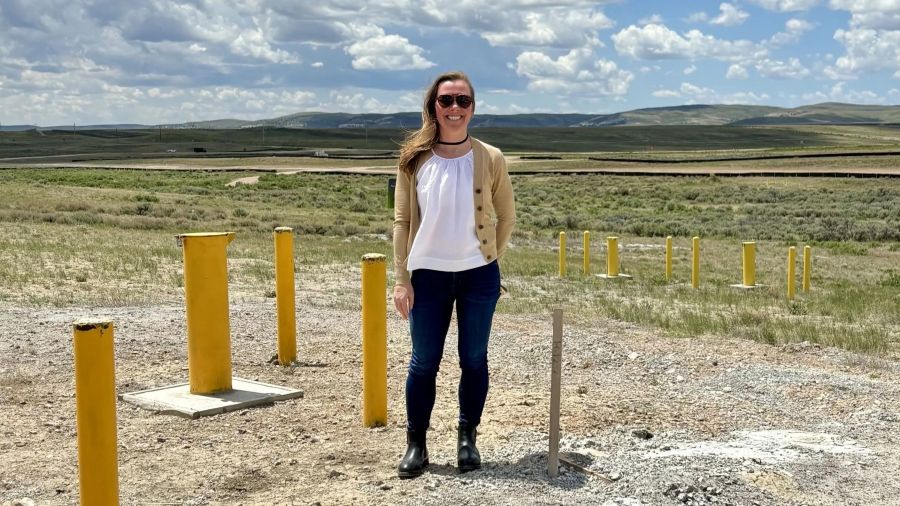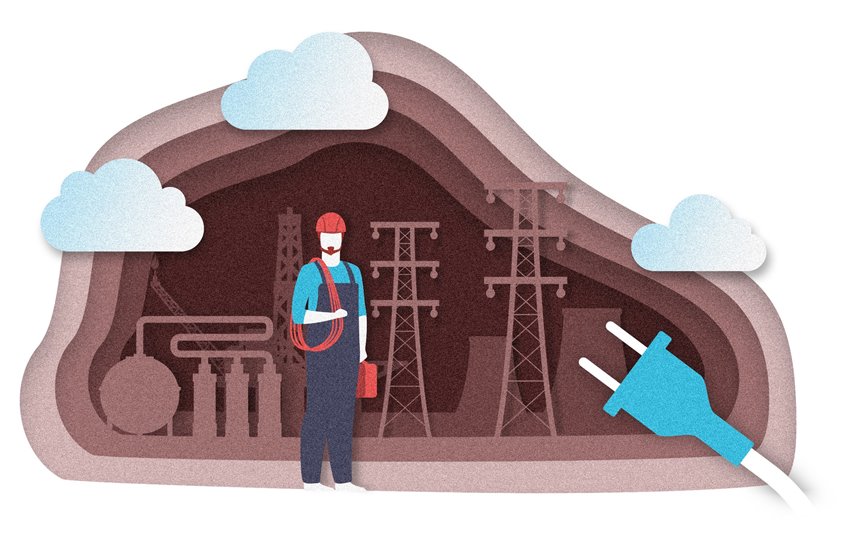Energy Blog: We Need More than STEM
Energy Blog: We Need More than STEM


The energy sector’s challenges require education in the arts as well as science, math, and technology.
The United States is technologically advanced—we put men on the Moon and invented the internet. Yet surprisingly large numbers of Americans don't understand such basic science concepts as what causes the seasons or whether the Earth orbits the Sun. This confusion would be just a national eccentricity if the U.S. didn’t have decisions to make on complex energy policy issues such as the role of nuclear power or the transition away from carbon fuels.
What's more, the energy industry needs a pool of workers skilled in science, technology, engineering, and mathematics (or STEM) to navigate that impending energy transition. While no one is sure what the exact demand will be—perhaps fewer petroleum engineers to develop better drilling techniques and more mechanical engineers to design microturbines, or electrochemists to develop better batteries—everyone seems to think that our energy transition will require more STEM-capable people.
Related Post: Millennials Will Save the World
Those two factors, the need for a better-informed electorate and the demand for a more technology-savvy workforce, have led policymakers to present STEM education as the go-to panacea for many of our educational and sustainability woes. Across the country, university humanities programs are facing budget cuts, and many thought leaders sneer at the idea of liberal arts.
This is a mistake.
I’m a STEM guy through-and-through. My father is a chemistry professor, and I have degrees in aerospace, electrical, and mechanical engineering. I now have a courtesy faculty appointment in the UT Austin department of Civil, Architectural, and Environmental Engineering. The classes I teach are cross-listed in chemical engineering and geosciences. I’m steeped in STEM, love STEM topics, and think STEM students are remarkable.
But I do not think STEM is enough.
STEM gives students the formulas, principles and theorems needed to turn raw information into a suitable answer, all while operating within the constraints of the physical universe. It's a remarkable capability, and we should be happy to have their brains deployed for society’s greatest challenges. But we need more: We need the arts, both the fine arts and the liberal arts.
STEM teaches us analytical thinking—how to solve a problem. But the liberal arts teach us critical thinking, or why we should solve the problem, and the fine arts teach innovative thinking, inspiring us to take action and providing the creativity we need to come up with new approaches.
For example, present engineers with a challenge and their solution is almost always that we should build something new. Need to control floods or provide more drinking water? Build dams. Is energy scarce? Build power plants. There’s nothing wrong with this tendency: I’m an engineer, and I see it in myself.
Sometimes, though, we would be better served if we stepped back and re-evaluated the problem. Faced with a problem like endemic flooding, critical thinkers would assess whether we needed new construction at all, or whether we might use urban policy and architecture to protect our floodplains and waterways to minimize flooding and store water. And creative thinkers might reframe the question entirely and create informational campaigns to educate the public about the powerful role of conservation to reduce energy or water demand.
Related Post: Learning How to Beat the Heat
We will need all of those skillsets to master the multiple global challenges of this century. Ultimately, everyone has a role to play. Tackling climate change and managing the energy transition in an elegant way will take all hands on deck. It also needs new kinds of thinking. That means we shouldn’t cast aside any disciplines or people who can be part of the solution. And we need to infuse whatever solutions we develop with a deep understanding of the human condition.
I mentioned that I’m from a STEM family, but my sister is an art teacher. She likes to say, “The EARTH without ART is just ‘eh’.” Indeed, art—both the liberal and fine arts—makes the world more meaningful and interesting. Taking a cue from her, we should go from STEM to STEAM (the extra letter is for “art”) to give us the critical capabilities we will need.
Michael E. Webber is the Josey Centennial Professor of Energy Resources at the University of Texas in Austin and Chief Science and Technology Officer at ENGIE, a global energy company headquartered in Paris. His latest book, Power Trip: The Story of Energy, was published by Basic Books.
What's more, the energy industry needs a pool of workers skilled in science, technology, engineering, and mathematics (or STEM) to navigate that impending energy transition. While no one is sure what the exact demand will be—perhaps fewer petroleum engineers to develop better drilling techniques and more mechanical engineers to design microturbines, or electrochemists to develop better batteries—everyone seems to think that our energy transition will require more STEM-capable people.
Related Post: Millennials Will Save the World
Those two factors, the need for a better-informed electorate and the demand for a more technology-savvy workforce, have led policymakers to present STEM education as the go-to panacea for many of our educational and sustainability woes. Across the country, university humanities programs are facing budget cuts, and many thought leaders sneer at the idea of liberal arts.
This is a mistake.
I’m a STEM guy through-and-through. My father is a chemistry professor, and I have degrees in aerospace, electrical, and mechanical engineering. I now have a courtesy faculty appointment in the UT Austin department of Civil, Architectural, and Environmental Engineering. The classes I teach are cross-listed in chemical engineering and geosciences. I’m steeped in STEM, love STEM topics, and think STEM students are remarkable.
But I do not think STEM is enough.
STEM gives students the formulas, principles and theorems needed to turn raw information into a suitable answer, all while operating within the constraints of the physical universe. It's a remarkable capability, and we should be happy to have their brains deployed for society’s greatest challenges. But we need more: We need the arts, both the fine arts and the liberal arts.
STEM teaches us analytical thinking—how to solve a problem. But the liberal arts teach us critical thinking, or why we should solve the problem, and the fine arts teach innovative thinking, inspiring us to take action and providing the creativity we need to come up with new approaches.
For example, present engineers with a challenge and their solution is almost always that we should build something new. Need to control floods or provide more drinking water? Build dams. Is energy scarce? Build power plants. There’s nothing wrong with this tendency: I’m an engineer, and I see it in myself.
Sometimes, though, we would be better served if we stepped back and re-evaluated the problem. Faced with a problem like endemic flooding, critical thinkers would assess whether we needed new construction at all, or whether we might use urban policy and architecture to protect our floodplains and waterways to minimize flooding and store water. And creative thinkers might reframe the question entirely and create informational campaigns to educate the public about the powerful role of conservation to reduce energy or water demand.
Related Post: Learning How to Beat the Heat
We will need all of those skillsets to master the multiple global challenges of this century. Ultimately, everyone has a role to play. Tackling climate change and managing the energy transition in an elegant way will take all hands on deck. It also needs new kinds of thinking. That means we shouldn’t cast aside any disciplines or people who can be part of the solution. And we need to infuse whatever solutions we develop with a deep understanding of the human condition.
I mentioned that I’m from a STEM family, but my sister is an art teacher. She likes to say, “The EARTH without ART is just ‘eh’.” Indeed, art—both the liberal and fine arts—makes the world more meaningful and interesting. Taking a cue from her, we should go from STEM to STEAM (the extra letter is for “art”) to give us the critical capabilities we will need.
Michael E. Webber is the Josey Centennial Professor of Energy Resources at the University of Texas in Austin and Chief Science and Technology Officer at ENGIE, a global energy company headquartered in Paris. His latest book, Power Trip: The Story of Energy, was published by Basic Books.




